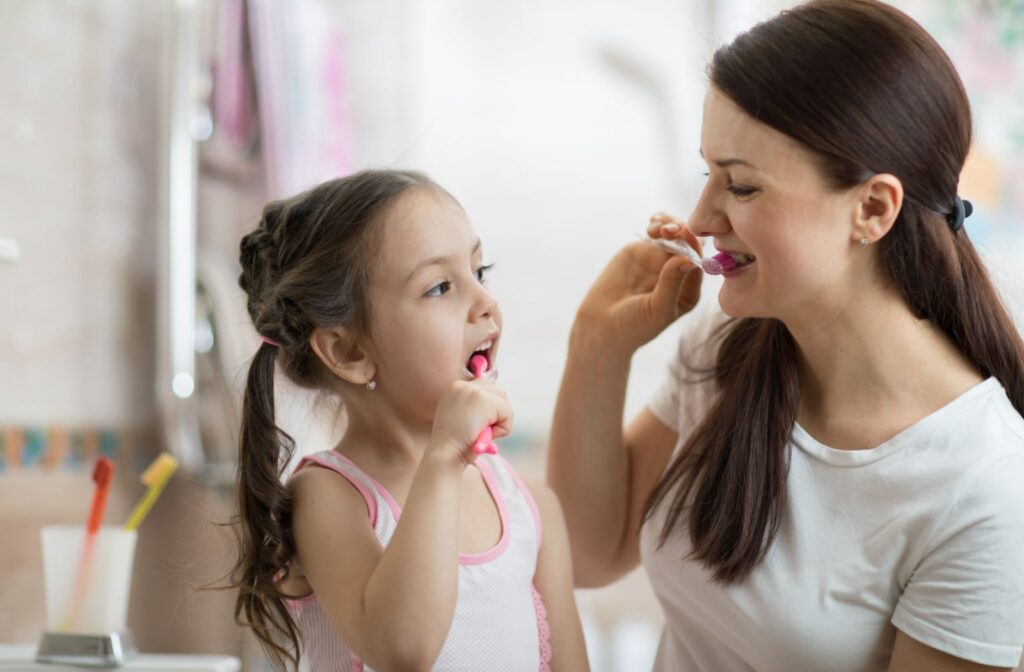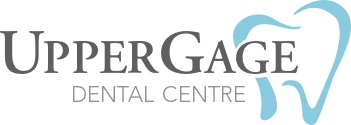As a parent, there’s nothing more joyful than seeing your child laugh and smile. At first, it’s a gummy smile. Then their baby teeth break through the gums for an adorable grin. Keeping those teeth healthy prevents cavities, tooth decay, and gum disease and builds a foundation for the growth of adult teeth.
Adults brush almost automatically without thinking, but kids need to start with the fundamentals. Since you’ll be brushing your child’s teeth, you have to go back to basics to teach them properly. For professional expertise on starting your child’s oral health off right, Upper Gage Dental Centre’s team can help make oral health fun and educational.
When to Start Brushing
Oral health begins immediately after birth. According to experts, you can clean your infant’s mouth after each feeding with wet gauze or cloth. This starts a healthy habit. Once your baby starts teething, it’s time to prioritize their dental health.
Typically, teeth begin to break through the gums at around 6 months, at which point you’ll use a gentle toothbrush to wipe over the exposed teeth and gums.
Just like when you’re changing their diaper, your infant may try to wiggle away from you. Remember, teething is uncomfortable, and their gums may feel sore. Talk to their pediatrician or a pharmacist for baby-friendly pain relief.
Choose the Best Brush & Toothpaste
While your adult teeth may prefer the firm bristles and the movement of an electric toothbrush, children have different oral health needs. Soft bristle manual toothbrushes for kids are designed with little teeth in mind.
Children are also pickier by nature. To them, toothpaste may not be the most delicious. Non-mint flavours are available and do the same job, but fluoride content is the main point to consider.
- Up until 6 years old, children only need a pea-sized amount of low-fluoride toothpaste
- Children older than 6 can begin using a pea-sized amount of standard fluoride toothpaste
Your child’s baby teeth can develop cavities and tooth decay, just like adult teeth. Fluoride can help prevent bacteria from eroding enamel, leading to tooth decay and cavities.
Access to fluoridated water can make a significant positive impact on your oral health. If your water isn’t fluoridated or your family uses well water, talk to your dentist for recommendations on preventing tooth decay.
While their baby teeth may be only temporary, instilling positive oral health habits can carry them into adulthood.
How to Brush Your Child’s Teeth
Perhaps more important than the brush and toothpaste is the technique. Up until around 6, you’ll need to brush for your child, and between 6 and 8, you can move to supervise their brushing routine.
- Brush at a 45-degree angle, pointing the bristles in the direction of the gum line
- Use gentle circles on every tooth, on the tongue side and cheek side
- Brush on the biting surface of the molars back and forth
- Make sure your child spits out the toothpaste, and don’t rinse with water because the remaining toothpaste can protect the teeth further
- Floss your child’s teeth when they begin growing side by side
If you’re struggling with kids who don’t want to brush, talk to the dental team at Upper Gage Dental Centre for tips.
Teach Your Child to Brush Their Teeth
As kids get older and start to anticipate the daily and nightly habit of brushing their teeth, you can begin to hand the toothbrush over to them. Ultimately, the goal is for them to self-start their brushing habit. They don’t want you hovering over them as they grow, so teaching them to brush properly is an important step.
- For little kids, make it fun: play songs, have fun, or make it a game, rather than a chore.
- As kids get older, educate them on why brushing is essential, whether you want to talk to them about cavities and fillings, or the irritation of tooth problems later in life from ignoring oral care.
- Many children learn by watching; by brushing your teeth together, you can show them the right way to brush (it can also help you return to the fundamentals instead of going through the motions).
Older kids can begin using an electric toothbrush once they master manual brushing. Speak to your dentist before choosing a brush. Depending on your child’s teeth and gums, they may benefit from certain types over others.
Dental Care Is Lifelong
At any stage of life, Upper Gage Dental Centre can care for your whole family’s oral health. From their first visit at 6 months old to their subsequent visits, we’ll help reinforce positive oral hygiene habits from a young age to fight against common problems like cavities and tooth decay.
When you’re due for your next dental exam and cleaning, or if you have any oral health concerns, schedule an appointment to see our experienced dental team.



